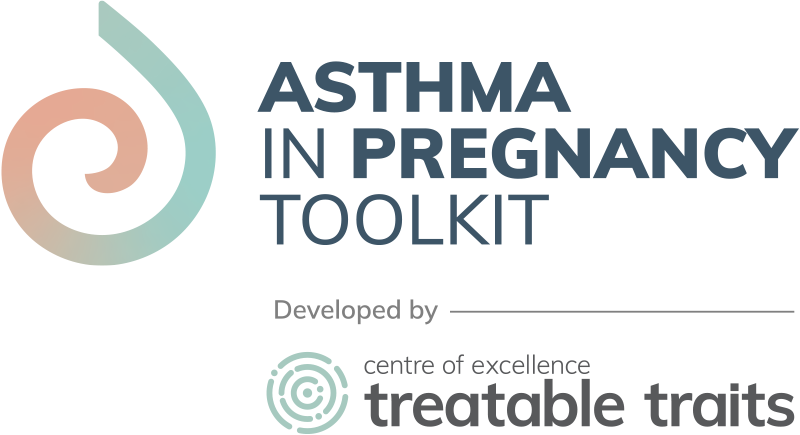
Prevalence of rhinitis during pregnancy
Rhinitis symptoms affect ≥30% of pregnant women and may be due to:
- pre-existing rhinitis (allergic or non-allergic)
- pregnancy rhinitis – a non-allergic rhinitis that first appears in pregnancy and generally resolves within 2 weeks of birth. Characterised by nasal obstruction and rhinorrhea that lasts for at least 2 months during pregnancy and is resolved postpartum (Shushan et al. 2006).
- eosinophilic non-allergic rhinitis
- nasal polyposis
- viral or bacterial infection
- rhinitis medicamentosa (rebound rhinitis).
In pregnancy, allergic rhinitis is common and usually pre-existing, with up to 30% of women having worsening symptoms during pregnancy (Blaiss 2003). Symptoms include sneezing, rhinorrhea, nasal pruritus and occasionally ocular irritation or itching.
Triggers often include allergens such as:
- dust mite
- mould
- pollens and
- animal dander
In one study among women with pre-existing rhinitis, 34% of women reported a worsening of nasal symptoms in pregnancy, while 15% had an improvement and 45% had no change (Kircher et al. 2002).
A recent study of 681 women who were asked about nasal symptoms one day after delivery, found that 32% experienced pregnancy-induced rhinitis (Baudoin et al. 2021), while another study found that pregnancy-induced rhinitis occurred in 9% of women (Shushan et al. 2006).
Among women with asthma during pregnancy, the prevalence of rhinitis is much higher. In an Australian study of 220 women with asthma during pregnancy, 65% also had current rhinitis (Powell et al. 2015). Another study among 103 pregnant women with asthma in Brazil, reported that 45.6% also had rhinitis (de Araujo et al. 2016).
Mechanisms
The mechanisms of pregnancy rhinitis are unknown, but may be related to changes in nasal hyperreactivity or may be hormonally induced. Upper airway congestion and nasal symptoms increase during pregnancy due to blood volume increases and hormonal changes (particularly increases in estrogen) associated with pregnancy. Unlike testosterone, both progesterone and estrogen increase eosinophils in the nasal mucosa (Dykewicz et al. 2020).
Influence on asthma outcomes
Women with rhinitis and asthma during pregnancy experienced worse asthma control, worse asthma-related quality of life, and more anxiety, compared to women with asthma without rhinitis (Powell et al. 2015). In the context of an intervention where treatment was adjusted based on airway inflammation (Powell et al. 2011), improvements in symptoms of rhinitis were observed in association with improvements in asthma control (Powell et al. 2015).
Association with other comorbidities
Rhinitis may impact on the associations between snoring and obstructive sleep apnoea (OSA) and pregnancy complications such as pre-eclampsia (Edwards et al. 2002, Pien et al. 2005, Izci et al. 2003). The reduction in upper airway dimensions observed in pregnancy, along with submucosal capacitance vessel congestion, can lead to nasal mucosal swelling, and an increase in upper airway resistance. This leads to nasal obstruction and an impairment of nasal breathing during sleep. In a study of non-pregnant people with OSA and allergic rhinitis, treatment with nasal corticosteroids resulted in less nasal resistance and improvements in the apnoea-hypopnea index (Kiely et al. 2004).
A recent study has shown that having asthma, allergic rhinitis or atopic dermatitis during pregnancy was associated with a 37% significantly increased risk of mental health disorders during the peripartum period. This risk was increased further among women with more frequent and more recent hospital contacts for their atopic disease. There was no association between maternal allergic rhinitis and postnatal mental health disorders (Ren et al. 2021). However, a recent Chinese population-based case control study showed that women with postnatal depression were 50% more likely to have allergic rhinitis during pregnancy than those without postnatal depression (Yang et al. 2021).
Impact on pregnancy and/or offspring outcomes
There is very little literature on the impact of rhinitis during pregnancy (with or without asthma), on pregnancy outcomes. A recent Japanese birth cohort study showed an association between maternal allergic rhinitis and threatened preterm labour (adjusted OR 1.12, 95% CI 1.08, 1.16), but not preterm premature rupture of membranes (Saito-Abe et al. 2021).
A maternal history of allergic rhinitis is associated with childhood allergic diseases, such as atopic dermatitis in some studies (Ravn et al. 2020), but not in others (Venter et al. 2021).
Treatment of rhinitis in pregnancy
Please visit Rhinitis Medications page
